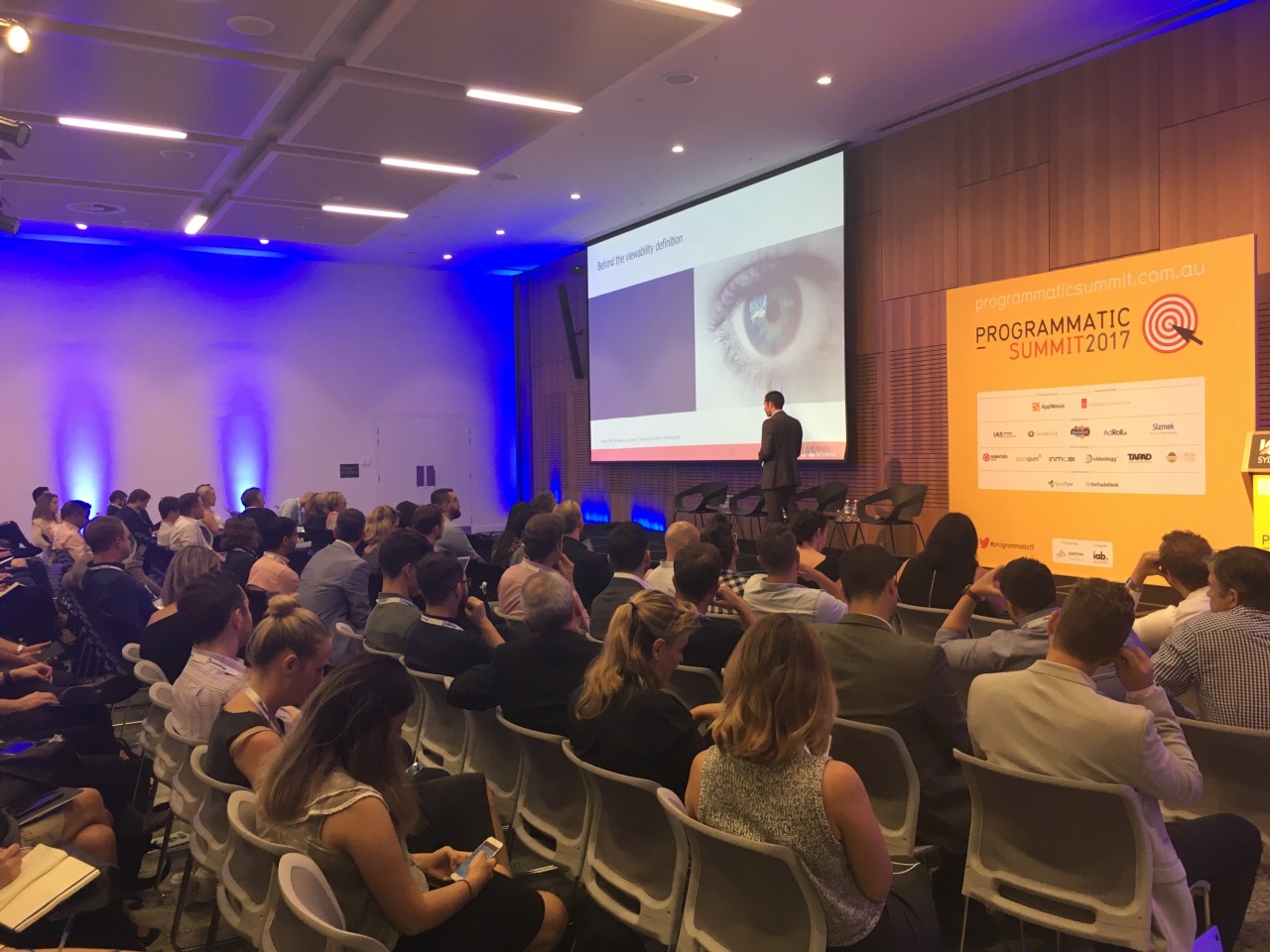
I attended the Programmatic Summit yesterday on behalf of Navigate Digital. It was our first excursion to what is Australia and New Zealand’s only purely programmatic conference. Held in the Sydney’s brand spanking new International Conference Centre the event was attended by 300 or so of Australia’s agency and ad tech professionals, with a sprinkling of client side marketers. This IAB Australia curated event was themed around how the industry can better serve advertisers on one end and publishers on the other with the focuses being on making measurement make sense and building a trustworthy digital value chain.
The conference speakers discussed the push towards standards and measurement and publisher remuneration. Dylan McBride of App Nexus referencedMarc Pritchard of P&G’s now famous talk and the need to create a better marketplace for advertising that creates real and lasting value along the digital value chain. McBride referenced a Guardian UK study in which they bought their own media and received 30p each pound spent, with the rest being absorbed by range vendors. This erosion of value was coined as the ‘Ad Tech Tax’ later in the day.
My impression from the speakers and other delegates was that publisher’s position seems perilous with the every present spectre of Ad Blocking, 40% of ads being overweight and more than 10 pieces of technology tracking each ad, creating site latency. These are forming a vicious spiral and the broken market place McBride mentioned is exacerbating the problem.
It is apparent that a better model for publisher remuneration is needed and McBride called for the technology costs to be less than 10c on the dollar, lighting a fuse under the conference.
We heard also about the varied use of programmatic with the University of New South Wales and Sizmek separately demonstrating how many creative variations can be built to speak to a wide audience. In their example UNSW personalised a communications strategy across programmatic display, social and search for prospective students to massively increase first preference choice of university.
Beth Reilly (Motorola) and Julie Keshmiry (Intel) both discussed their use of programmatic (amongst other media) to reach varied business objectives, from product launch to reinforcing brand identity. Julie shared how Intel have taken the keys to their data back from their agencies and vendors now work with them to take advantage of solutions, rather than passing control to them. Both demonstrated the advertiser’s role in leading their partners to mutual success.
Dr Nico Neumann and Tim Whitfield of GroupM discussed their work in testing the reliability of 3rd party data sources pointing to a huge range in accuracy with the average of 6 DSPs being 52.3% when targeting 25-54 year old males. They found that the relative improvement in targeting by attribute when using 3rd party data varied enormously too, as per the below table.
Attribute: Relative improvement
Gender: +15%
Age: +50%
Location: +468%
Interest in Travel: -16%
Interest in Sport: -38%
In their study, 3rd party data sources were effective in at confirming facts about a user but poor at estimating user behaviour. This raises interesting questions around when and if brands and their agencies should be using 3rd party data to aid the targeting of programmatic campaigns. The advice was not to dismiss the use of 3rd party data but to test vendors to find a solution that has your best interests at heart.
More quantitative data was shared by Adroll who talked about the increasing importance of social media (both paid and organic) for customer acquisition and the wide spread use of retargeting, with 100% of those marketers surveyed in their 2017 State of Performance Marketing study reporting that they’re using the technique. 77% of marketers surveyed reporting being ‘very familiar to extremely familiar’ with programmatic, which was surprising given the industry’s continued wrangling with its complexity and call for simplification at this conference.
We also heard about the importance of mobile within the communications mix with marketers urged to see mobile as the glue that binds their campaigns together, not a silo within it. Given that 15m Australians have a mobile device and 70% of screen time is on mobile devices, it’s clear that mobile strategy should be at the forefront of the minds of agencies, publishers and advertisers.
In summary, the Programmatic Summit was an opportunity for the industry to come together to exposure its weaknesses but also highlight its strengths. It is enormously complex and has real challenges like fraud and viability. Its power to reach consumers with personalised advertising remains undiminished but it must get its house in order. Publishers must be rewarded fairly and bipartisan work to introduce fair standards is key to continued progress.
A final quote from the new IAB chairperson Nicole Sheffield, who rounded out the conference:
“There’s nothing smart about someone not understanding what you’re saying – inspire through simplification” @NicoleSheffiel6#programmatic17
Matt Sheppard is International Account Manager at Navigate Digital.